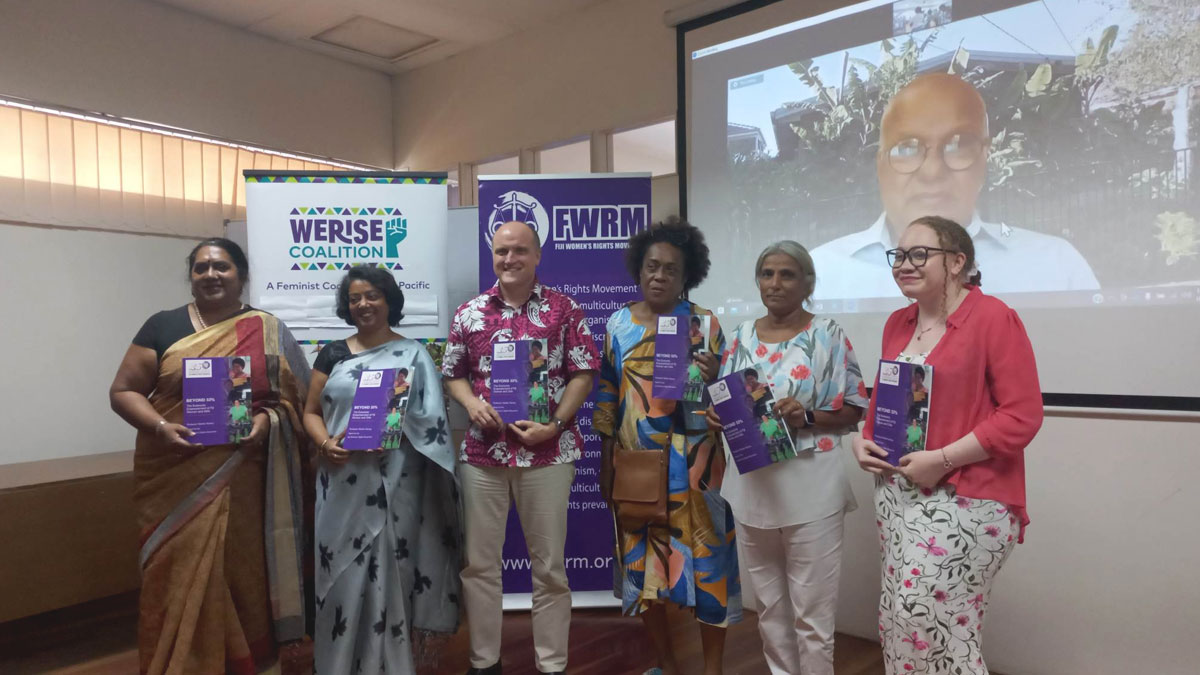
Lack of education is no longer a barrier to greater female participation in the labour force and enjoyment of incomes and personal wealth however, unfortunately, large numbers of female graduates were not in the paid labour force between 2015-16.
This has been highlighted in the Beyond 33%: the Economic Empowerment of Fiji Women and Girls report by economist Professor Wadan Narsey.
The report has been commissioned by the Fiji Women’s Rights Movement and funded by the Australian Government.
The report is based on official data sources such as Fiji Bureau of Statistics Employment and Unemployment Survey(last done in 2017 and due next year), Fiji Revenue and Customs Service and Fiji National Provident Fund.
According to the report, by 2015-16 the female share of graduates increased from 43 percent to 47 percent however, females were unfortunately only 34 percent of the labour force while males were 66 percent.
In contrast, females were 98 percent of unpaid full-time household workers, commonly referred to as housewives.
The female average income in 2015-16 was $10,880; 14 percent less than the $12,691 for males.
The report states that despite having a 34 percent share of the labour force, females are concentrated in employment status work with extremely low average incomes such as family work and subsistence.
They are also concentrated more in occupations in industries with low average income.
Speaking from Australia via zoom, Professor Wadan Narsey says 33 percent represents roughly the current balance of benefits received by females in Fiji and the task for gender stakeholders is to move beyond this and suggests 40 percent over the next five years may be very good indeed.
He says there is a significant proportion of married women, about 20 percent or so who work more than 80 hours per week and he suspects it leads to incredible tensions within the family and may be part of the explanation for violence against women.
Professor Narsey says there must be an increase in the number of females who are paid in the workforce.
He says gender stakeholders need to put pressure on the Public Service Commission and public enterprise boards to set targets.
Professor Narsey says males must be encouraged to become full-time household workers through improved paternity leave provisions for fathers and childcare allowance.
Assistant Minister for Women, Children and Poverty Alleviation, Sashi Kiran says the report provides invaluable information to guide policymakers to better comprehend the situation and strategize and to act upon identifying gender disparities that women and girls face in the economy and society.
Kiran says no one should be deprived of the right to live their life to the fullest potential and contribute to the trajectory of national development.
She says that is their dream but they know the realities on the ground is different and they really would like to be thinking and working with many diverse partners to see that dream actually becomes a reality on the ground.
The Assistant Minister adds they will try their best to ensure equal access to education, health and other fundamental rights and freedoms to the women and continuously work towards creating safe spaces free of violence where mothers, daughters and sisters can flourish.
Stay tuned for the latest news on our radio stations

